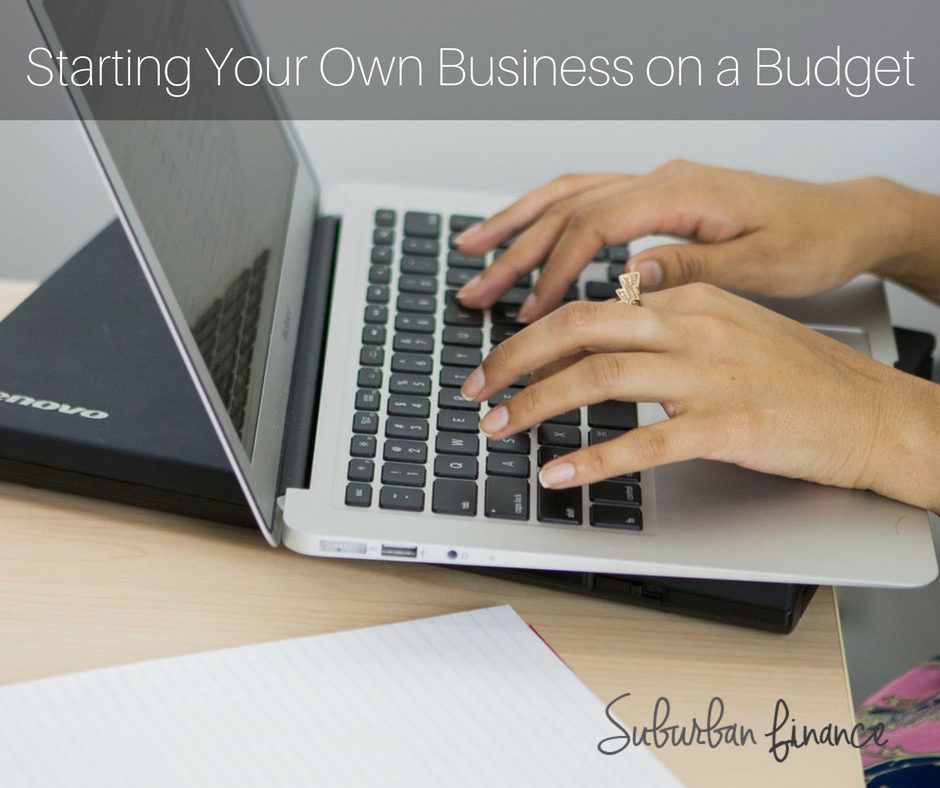Starting your own business can seem unattainable, especially when you have limited funds to work with. When thinking about launching, you might feel as though you need a large sum of money in order to even begin. But, I have good news; this is not always the case. In fact, I was able to start my own business for roughly $650, including the paperwork to register as a limited liability company (LLC). I still have yet to take out a business loan. So, fret not; starting your own business on a budget (and without a loan) is possible, and the following are some tricks and tips to help you launch:
Starting Your Own Business On a Budget
Don’t quit your day job:
Normally, “don’t quit your day job” implies you should not pursue anything more than what you are currently doing for money. But, when I say this, I mean maintain your full-time job as you develop your dream. Spend a few hours every night after work (or at your leisure, depending on your level of motivation to start) developing your business plan. Know that you want to start a business but unsure where to begin? Pick something you are passionate about or very knowledgeable in.
As you start the process, plug away some money from your full-time job each month for your business. Even if it is just $20 a month, every little bit helps and will make launching more of a reality.
Reach out to friends:
Assuming you have already done your market research and developed a business plan, you can reach out to supportive friends who may be willing to help you with certain services you may need to move forward.
For example, if you are a copywriter needing a logo, see if one of your friends in graphic design would be willing to do a trade for service and/or a discounted rate to create your identity. Most of the time, you will most likely find someone willing to help. Even your friends with a background in law may be available to provide some tips on getting started with paperwork or offer a lower rate to help. You can also use the money you’ve been saying from your full-time job to pay for these services up front. Never assume your friends will do it for free; they are, after all, also in business and need to make money too. Also, don’t forget to refer them and spread the love! They will appreciate your word of mouth referral more than you know.
Start online:
The internet is full of amazing opportunities. You can easily start your business online through the creation of a website. Sites like Weebly, Wix, and even WordPress.com all are great platforms to begin on a budget as they all offer templates you can work off of with zero web design skills. With these, you’ll also need to purchase a domain name (AKA your business web address), a process they each walk you through when you sign up. When using WordPress, you will also need a hosting site, which is basically a home for your domain name. Weebly and Wix have theirs built into their platforms, but their customization is not as advanced as WordPress. Bluehost or GoDaddy.com are both examples of where you can find hosting sites. Again, you may want to reach out to a friend or use a consultation with a marketing company to help you get started with this particular process, as it can sometimes be complicated.
In addition to a website, you can now sell items on Facebook. If you do not want to upgrade your site to be secure enough to sell items (all websites need to have what is known as an SSL certificate when selling items or even collecting emails, which protects private information of site visitors), you can create an account at Shopify.com and connect it to your Facebook page or use Facebook as your store. You will need, however, a PayPal or Square account in order to move forward.
Starting online allows you to save on initial overhead costs (other than your website) on a brick-and-mortar. But, you can surely invest in a physical location after getting your feet wet. This all depends on whether your business would benefit on a physical address or if you can survive solely online.
Make it a side hustle and have supplementary income:
Starting your own business on a budget does not mean you have to wait until you are no longer at your full-time job to begin. You can start with it as a side hustle and continue to grow it until you are ready to be full-time. By all means, you can also make it your primary focus and help your financial situation with a supplementary income until you start seeing a profit in your business. House sitting, dog walking, and freelancing are all examples of easy ways to get this going. You could also use the money from your supplementary income to invest into your business if you needed the extra funding for a special project.
Grow through networking:
Networking is an especially cost-effective way to grow your business. No matter what industry you are in, everyone can benefit from networking. Check your local events calendar to see where opportunities may be for you to meet prospects. You can also utilize your existing connections or memberships to grow. For instance, if you have a gym membership, and you are starting a catering business, you can reach out to the gym manager or members who work at local businesses to see if they would be interested in your services.
All in all, know that starting your own business on a budget can be done. No matter what, though, it always takes consistency and a lot of work in order to make it happen.
Have you been dreaming of starting your own business or have you already? What tips would you add to the list?
Jenn Clark is a writer, PR specialist, entrepreneur, blogger and coffee enthusiast. A lover of laughter, traveling and cheese, she’s written about her life experiences here at suburbanfinance while at the same time growing other young professionals. You can find more of her work at Jennblogs.co.



